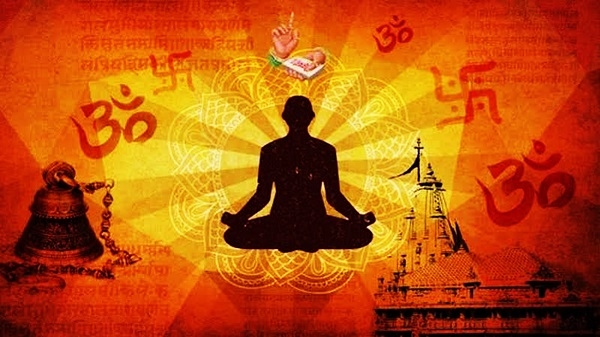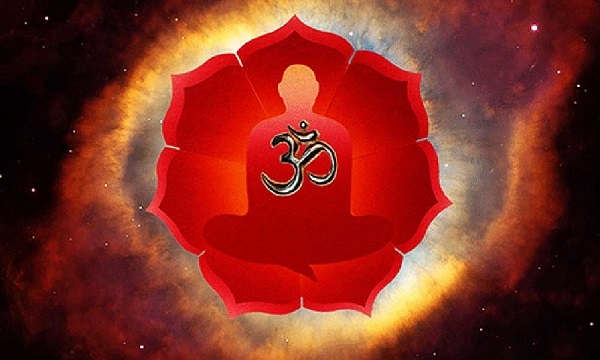The battle of Terminology
Total Views |
-Mukul Kanitkar
Other day, a very well-known warrior of Sanatana Dharma announced on a social networking website that he has started a portal named 'Dharma ….'. He used a very funny tagline 'A watering hole for all the Sanatanis who want to save their Dharma, Samskriti’ to describe the portal. The use of the term 'watering hole' was rather surprising. It was revealed afterwards that it originated in an advertisement of some water cooler calling it a 'corporate watering hole' with a lion's roar in the background. How terms manipulate the mindset? Watering hole is a pond, stream or a river where wild animals visit to quench their thirst and get trapped or killed by poachers most of the time. From naming bars and pubs, it has now evolved to corporate wilderness through the creative license of the ad copywriter.
But usage by somebody who claims to work for Dharma is an oxymoron. Words have to be used with proper intent. A sabha, samiti, seminar, conference is a purposeful activity to understand knowledge. Even on the Cyberspace, it cannot be called a watering hole. Are we inviting readers to get trapped/poached in an effort to quench their thirst for Knowledge? Dharma differentiates humans from animals. ''Dharmo hi tesham adhiko visheshah''. An ancient Rishi says – Hunger-aahar, rest-nidra, bhaya-fear, maithun-power & urge to procreate– these four are common basic instincts of animals and humans. Dharma – the concept of applying liberty and freedom to act and imagine, unique to the human beings & responsible for creating its own world, to proper use. Dharma is science of individual and social behavior. Website aimed at Dharma work cannot be a 'watering hole'.

The translation of 'Dharma' in English has been disastrous. Dharma being translated as ‘Religion’ has been source of much confusion in this country for the last two centuries. Terms make a lot of difference in the field of education and public discourse. Hence, coining and usage of both the non-translatable as mentioned by Swami Vivekananda and even mundane fashionable terms has to be handled with care. Swamiji said, 'Shraddha' cannot be translated in English. Faith, belief, nothing can match the real essence of Shraddha. Same is true for Dharma, Rashtra, Samskriti etc. These are original Samskrit terms and should be used as proper nouns in English. These are profound concepts, but now a days, many simple terms are used very loosely in the name of trends even while discussing important issues of education or its policy. In this country education is defined as an ability to use the language perfectly. ‘Shiksha’ is one of the Six Vedangas, the limbs of Vedas, absolutely essential to realize the real essence of the Vedic mantras. Of the six Vedangas, one is Jyotisha which is mathematics, not astrology. All the other five – Shiksha, Nirukta, Chhanda, Kalpa and Vyakarana – are related to language.
Shiksha means proper pronunciation of terms. Perfectly refined pronunciation will create vibrations that will convey proper meaning of the term. Hence, in Bharatiya education system, this science of pronunciation was of utmost importance. Pada is a term. The pada has to convey the meaning - Artha. Pada and artha together communicate the Padaartha, also used for physical things. In many Bharatiya Languages, Padaartha is a thing, but in Samskrit, it is the meaning of Pada. The Pada denotes Padaartha. Without proper pronunciation and punctuation, the Pada will not communicate exact Padaartha. That is why, educational methodology of Bharat emphasizes on the right usage of Pada in the right manner. To understand Pada, there is Nirukta, etymology – the origin of terms. The source of the word, gives it a shade, purpose, an intention and objective of how the word is to be used. Hence, Nirukta is very important. Vyakaran is the syntax and semantics of language, Chhanda are the beautiful poetic meters and Kalpa refers to mantras used in rituals.
Today in the educational field, policy makers are loosely using terms like stakeholders. If we apply the Samskrit parameter of origin to understand the meaning of stakeholder, it denotes one holding some stakes. Where has it come from? What is the Nirukta of stake? What is its etymology? The word 'stake' has come from gambling (https://www.merriam-webster.com/dictionary/stake). From gambling, it went into mining stakes, commercial use of predicting the profits and using these imaginary predictions for staking ownership claim. Is education gambling? Defining the educational outcomes is most primary step in policy. If not, working on the imaginary outcomes, next generation's lives are put at stake (pole used for capital punishment). How can parents, profit-making commercial institutions & their owners and the government be called stakeholders? What is their stake in education? The future of the nation is at stake. The proper term should be 'partners of the educational process'.
Another such fashionable term is 'ecosystem'. A system is artificial. On the other hand, ecology has to be organic. Man-made artificial interference in the environment is the cause of most problems of the modern lifestyle such as present pandemic. Yet we dare to use the term 'creating an ecosystem' even in the field of Education. The words are coined in the west and thrust upon us. We follow suit without much thinking.
It is high time the Bharatiya academicians and educationists create their own terminologies. There is a beautiful Bharatiya honorific 'Kulapati' for in-charge of an educational institute, 'Kulaguru' is even better. One who looked after academics was called a Kulaguru, and if both academics and management were taken care off then Kulapati. But today, the colonized minds shamelessly use the term 'Vice-Chancellor'. Vice is deputy, second-in-command to the Chancellor. The British had viceroy as their chancellor to remotely control and govern the colony. Deputy to that chancellor, was made in-charge of the universities. Chancellor etymologically means a Doorman, sentry (according to https://www.merriam-webster.com/dictionary/chancellor — Middle English chancellor, from Anglo-French, from Late Latin cancellarius doorkeeper, secretary, from cancellus). The chancellor was the sentry of the chancery working for the Queen in India, Yes! 'British India' not Bharat, and the Vice Chancellor was his deputy.

Should this not have changed after independence? Though from British origin, Americans do not use 'Vice Chancellor'. They created a new terminology — President of the university. Samskrit has contributed profound terms like 'Pandit', 'Guru' to the English language acknowledged by dictionaries. Why not enrich English further by 'Kulaguru', 'Kulapati' instead of the colonial slave term for one who is expected to be a great academician, a professor with minimum 10 years’ experience, with a Ph.D, a major research project and papers presented all over the world. With these qualifications an academician is appointed in-charge of a prestigious educational institute and still called 'deputy doorman'? Thus, degrading the esteem of the post, why then blame the incumbent?
This is the real battle of terms. Savarkar fought it as part of the independence struggle. He called it 'Bhasha Shuddhi'—Cleansing the language. He coined new terms. He did not approve 'shaheed' for freedom fighters doing supreme sacrifice at the altar of Maa Bharati as that has a koranic origin referring to one who embraces death in Jehad. That is why, our freedom fighters like Vasudev Balwant Phadke, Chafekar Bandhu cannot be called that. He coined an appropriate term— 'Hutatma'—Sacrified Atman.
The word 'Mahapaur' for mayor was researched by Savarkar from the ancient texts on Democracy in Bharat. He used cleansing of language as a tool for psychological battle rejecting the dominion of the colonizer. Let us do it again. Let us resume the battle of terms using our own terms. First step is use of 'Bharat' as a proper noun for our country in all the languages of the world. No other name, 'Bharat'.. Period! What is Indic? What is Indic culture? It is Bharatiya culture, Sanatana culture – eternal values practiced in the Vedic culture. Why call it Indic and get confused by the alien terms?
Being the universal science of pronunciation and linguistics, one can apply the Nirukta, Vyakarana, Chhanda to all the languages of the world including English. Battle of terms starts with creating our own terms. Bharatiya Shikshan Mandal has designed various interactive modules for all the partners of education – teachers, parents, students and management – called 'Anandashala' in Bharatiya Languages. A synonym in English, ‘Blissinar’ - a seminar aimed at bliss, was coined. Let us coin meaningful words which carry the artha, the meaning of the Pada. Let the Terminology battle liberate us from the colonial bondage.

